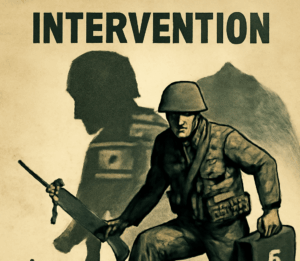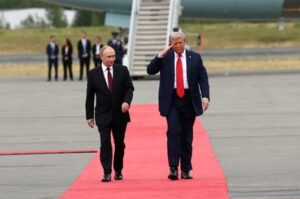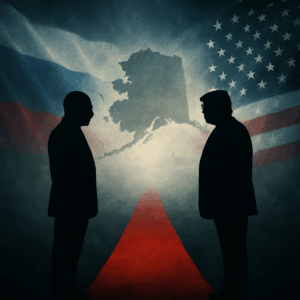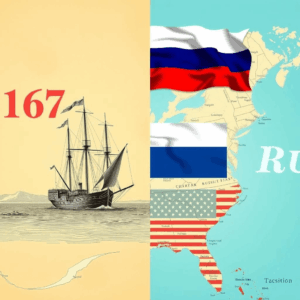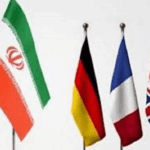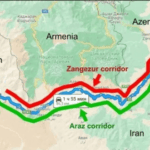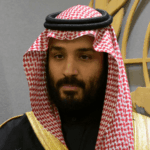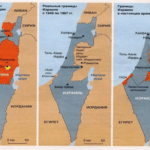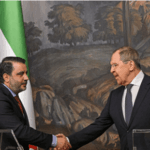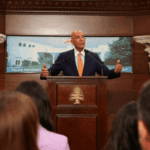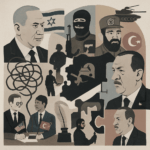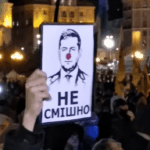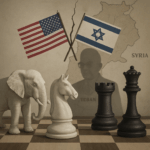These days, as we mark the centenary of the October Revolution, we realize that the fate of socialism at the end of the twentieth century proved inseparable from its ability to reform.
This became especially evident after the events in Tiananmen Square in June 1989. China has learned a lesson from them, but so should the rest of the countries that are on the path of reform, including Russia. First, because Russia likes to compare the Russian and Chinese experience. Second, because in the late 1980s, both countries were indeed at the same fork in history - but each chose its own path.
The events in Tiananmen Square are as much a part of the Chinese reform experience as the economic one: the balance of market transformation and political stability is the basis for any reform in any country. Russian liberals who marvel at China's economic achievements under Deng Xiaoping should remember this. The architect of the "Chinese economic miracle" paid a price to preserve his brainchild in this way: it was he who made the final political decision on the forceful action in June 1989.
Now we understand that in 1989 China made a historic choice in favor of continuing market reforms while maintaining a one-party system to maintain political stability and prevent the collapse of the country. The USSR under Mikhail Gorbachev made the opposite choice: attempts to reform the one-party system resulted in the collapse of the economy and the disintegration of the country. We see the result now, but this does not mean that Gorbachev should have imitated Deng Xiaoping - the Chinese experience cannot be automatically replicated.
The paths of historical development of Russia and China by the late 1980s were remarkably similar. The version that Chinese society was focused exclusively on market transformation is not supported by the facts. China had its own version of perestroika at the time, called "transparency": the Chinese were very concerned about the side effects of the reforms - primarily the collapse of social inequality and corruption - and demanded that the authorities take effective measures to overcome them.
It was with such slogans that Beijing students marched to Tiananmen Square. By the way, the apotheosis of the events of June 1989 coincided with the visit of Mikhail Gorbachev to China. Part of the program of his visit was supposed to be a visit to the monument to national heroes on Tiananmen, but the square was already blocked by protesters. They wanted the leader of the "glasnost and perestroika" that inspired them to address them directly (by the way, the Soviet leader's advisers were seriously considering this option). I wonder what Mikhail Sergeyevich could have said to those gathered in the square (especially knowing what would happen to himself and the country two years later).
Deng Xiaoping said at one of the CPC leadership meetings in the same days: "The problem is not whether the USSR will stand. The problem is whether China will fall after it. This was the logic that guided the actions of the Chinese leaders. They were unwilling to sacrifice the political stability and integrity of the country to demands for accelerated political modernization.
The Soviet press covered the events taking place in Beijing at that time very sparingly. Perhaps because they did not understand the full significance of what was happening and were afraid of making "inappropriate" comments during the Soviet leader's visit to the Celestial Empire. And also because she was more interested in the consequences of the events in Tbilisi in April 1989, when special forces dispersed peaceful demonstrators with sapper blades who were demanding the same glasnost and perestroika.
But then the Russian mass media assiduously reproduced the version of their Western colleagues about the "Tiananmen massacre". At the same time, Russian correspondents in Beijing (in particular, Vsevolod Ovchinnikov) covered the events adequately and objectively, leaving us with interesting memoirs.
The aftermath of the Tiananmen events was a shock to the entire country and caused a political crisis in the Chinese leadership. The conservative wing in the CCP took advantage of the tragedy to compromise the reform course. Deng Xiaoping put all his credibility on the line to reverse this trend. The decision to use force at Tiananmen must have been the hardest decision of his life, but he hardly regretted it in the end.
Indeed, history has no subjunctive mood. 25 years later, we see where China is now, where Russia is now, and what happened to the former USSR. Each of the countries has made its own choice, and admonitions are inappropriate here.
However, it is important to remember that after the events of June 1989, China began a slow but progressive movement towards democracy, albeit not always visible to an outsider. Its main content after the 18th CPC Congress is the development of intra-party democracy and its extension to the entire political system, the tough fight against corruption, the real filling of the constitutional provisions on the multi-party system in China by encouraging the participation of various public associations in the work of the NPCSC, especially at the grassroots and provincial level. Plus gradually relaxing indirect media censorship and encouraging new electronic media.
The experience of China's political development in the reform era also has an important foreign policy dimension. The experience of the Euro-Atlantic region shows that the mechanism of the Conference on Security and Cooperation in Europe (CSCE) proved to be very suitable and effective (as well as relatively long-term and low-cost) as a framework for dialog between the two world systems, which differ in ideology, and for regulating bipolar confrontation. One can understand, of course, the disappointment in the CSCE and especially in the OSCE of those who associate their activities with the subsequent collapse of the USSR and the disappearance of the world socialist system.
However, now we see that the Chinese economy, demonstrating stability and steady growth rates, consolidates the leading role of the CPC in the Chinese political system and does not give grounds for forecasts about the evolution of the PRC, in the foreseeable future, towards the "Western" model. Therefore, in Asia (although the Cold War has already ended there, as well as in Europe), we can foresee a historically long coexistence of "two systems" with different economic and political models (Chinese and Western) and alternative ideological and value attitudes.
The Chinese experience of building a convergent multi-structural society, which combines the centuries-old positive world experience of market economy development with the socialist orientation of the state's social policy and the development of consultative democracy, is gaining more and more international sound and significance.
As a result, we can state that the dramatic fates of reforms in China and Russia at the turn of the century did not affect the positive dynamics of Russian-Chinese relations. China's strengthening does not pose a threat to Russian interests at the regional and global level.
Russia and China are the supporting pillars of the multipolar international structure, equally interested in its stability and sustainability. The sphere of proximity or coincidence of their interests is much broader than the sphere of possible disagreements or mismatches. The Russia-China strategic partnership has been consistently transformed from a political declaration into a concrete political practice, including major joint international initiatives to streamline and harmonize international relations, create multipolarity, uphold the principles of international law and the UN Charter, and counter the policy of hegemonism and diktat.
Vladimir Petrovsky,
Doctor of Political Sciences, Academician of the Academy of Military Sciences,
Chief Scientific Associate of the Institute of the Far East of the Russian Academy of Sciences

